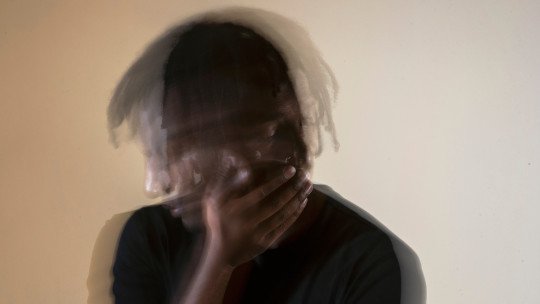
Everyone has experienced or will experience events that can be traumatic. Some are inevitably more frequent than we think, such as suffering episodes of harassment, mistreatment or abuse. Others are unavoidable in everyone’s lives, such as suffering or witnessing serious illnesses or the death of loved ones.
However, Not always when we experience a potentially traumatic event do we develop psychological trauma, and other times we do not know how to distinguish if we suffer one or not. And how can we know if we have psychological trauma? Well, in this article we help you discover it, by describing what trauma is and what the main symptoms of psychological trauma are.
What is psychological trauma?
A psychological trauma is an emotional response following a situation experienced as highly unpleasant, in which one has feared for one’s own life or that of people around one. This emotional response causes considerable discomfort and affects the person’s daily life.
The development of psychological trauma can occur immediately after the event, or appear months later, even finishing forming up to 6 months later. On the other hand, trauma can be generated in different ways, depending on what position we had regarding the traumatic event: having lived it firsthand, in our own flesh; having witnessed it, but not having suffered the event upon ourselves; or that someone has told us that the life of a loved one has been in danger, or has even died.
When it occurs due to one of the last two options, it is known as vicarious trauma. At the same time, traumas can be classified depending on the number of times the traumatic situation is experienced:

What are the main symptoms of psychological trauma?
The symptoms of trauma depend on many factors. Some of them are the severity and characteristics of the traumatic event, the person’s own qualities and coping skills, and the moment of onset of the trauma. Being a multifactorial problem, each person experiences trauma in a different way, which means that they do not have to experience the same symptoms as other people who also suffer from trauma.
Furthermore, there is quite a variety of existing symptoms, but it is not necessary to have all of them to be considered to have a psychological trauma; it would be enough to suffer one of them as a result of having experienced a potentially traumatic event. Below, I expose the main symptoms of psychological trauma.
1. Unpleasant emotions and difficulties in everyday life
Psychological trauma involves feeling different emotions in response to the traumatic event, such as shock, sadness, anger, shame, fear, confusion or guilt. These unpleasant emotions in turn cause a series of physiological symptoms, such as nervousness, headaches and belly aches, hypervigilance, fatigue, concentration problems, sleep difficulties and exaggerated startle responses.
As a sum of these possible symptoms, people who have generated psychological trauma suffer significant discomfort that makes it difficult for them to function normally in important areas of life (social, academic/work or personal). This may include stopping enjoying activities that were usually done and a decrease in interest in these activities, maintaining a social life, and self-care.
2. Recurring memories and distressing dreams
Another very characteristic symptom of people who suffer a trauma is reliving the traumatic event over and over again, either through memories, through dreams, or even both. In cases where people who suffer trauma are children, they may express memories through repetitive games related to the event, or through nightmares in which they are not able to specify the content.
Memories and nightmares are experienced as distressing and intrusive, in addition to being recurring and involuntary. These only make it harder to forget the event; and unpleasant emotions and, consequently, psychological discomfort are maintained and accentuated. Imagine what it must be like to not be able to get one of the worst moments of your life out of your head.

3. Dissociation
People who suffer trauma tend to dissociate, that is, to disconnect from reality. This phenomenon is related to the previous symptom, and is that when we are entangled in our thoughts or memories, and we lose track of what is happening around us, we are already dissociating. However, in some extreme cases a more serious step is taken, since some are not able to distinguish if the memory is real life, or they are just reliving it in their head.
Dissociation is associated with a certain amount of memory loss. Actually, it makes sense, since dissociation implies not paying attention to our environment. If we do not pay attention to it, we cannot register it among our memories, because we have the information or we have it incomplete. This type of amnesia is called dissociative amnesia, and it can become a serious problem if we dissociate very often or at moments of vital importance.
Likewise, it may happen that the person has amnesia about the traumatic event, and is only able to know about the event because they have been told about it or because it appears to them through nightmares. Sometimes, the mind decides to cut corners when it suffers so much, and it makes it difficult to access certain memories in extreme cases.
4. Cognitive alterations
When it affects a situation as much as a trauma, thoughts and mental schemes are completely altered. These people may begin to extrapolate the feared event to innocuous situations, that is, begin to see dangers where there are none, interpret situations in a catastrophic way and have a paranoid attitude about the intentions of others.
Even after experiencing the traumatic situation over and over again, the memory begins to distort little by little, as if it were a game of broken telephone. Ultimately, they may begin to think that the traumatic event is their fault or that of those close to them, with the emotions of guilt, shame or resentment that this can entail.
5. Avoidance of things related to trauma
The fear and anxiety associated with suffering a trauma leads the person to avoid anything that they believe may resemble or be related to the trauma, or situations in which they believe the tragedy will occur again. This includes two types of avoidance.
The first is, let’s say, external, in which we avoid situations in which we believe that the tragedy is going to happen again, or in which there are elements, people, places or conversations that can remind us of the trauma. This can condition the person’s life, because they can stop visiting places or people that were integrated into their life, even if they have no causal relationship with the traumatic event.
The second avoidance is internal, since the person will try to suppress their emotions, thoughts and distressing memories associated with the trauma. This is really impossible, because we cannot control our emotions and thoughts, which will only lead to frustration for the traumatized person.
That is why it is important to go to therapy, because a mental health professional will be able to help you manage your emotions and thoughts in a healthier way so that it does not cause them so much discomfort or prevent them from their normal functioning.









